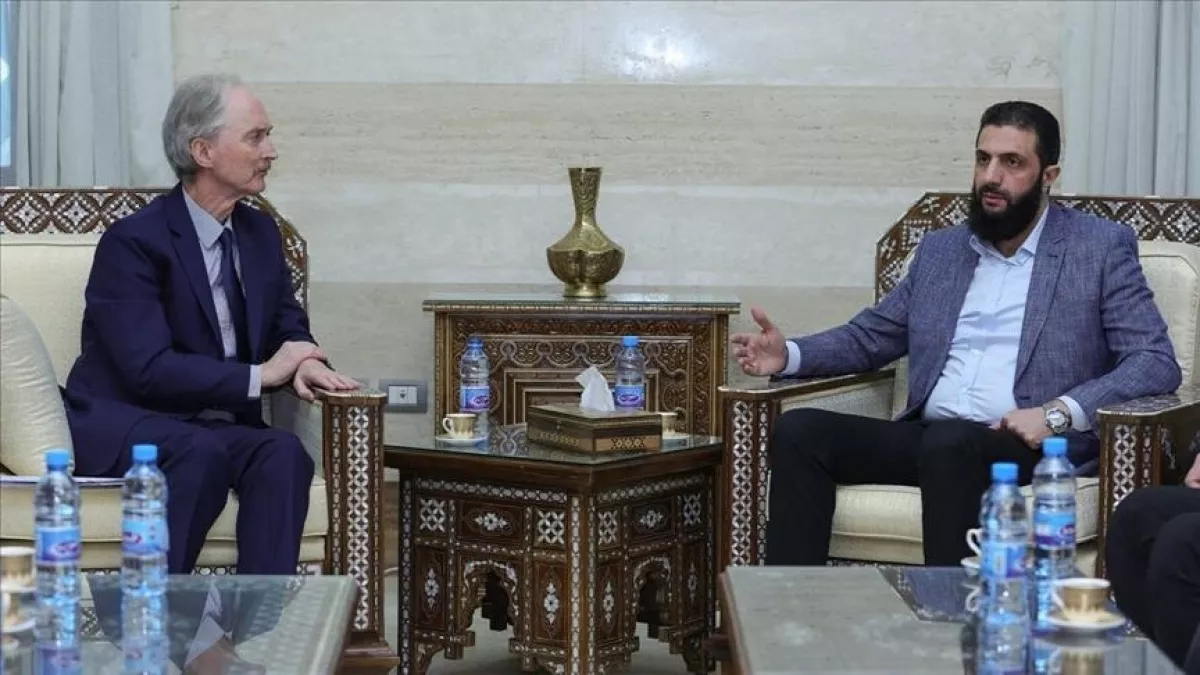Syria’s HTS-controlled interim government pursues reconciliation, reform amid diplomatic engagements Report by ISW
In a move toward reconciliation, the HTS-controlled interim government is continuing its efforts to integrate former members of the Syrian Arab Army (SAA) into the new Syrian military structure.
Reports from Lattakia indicate that negotiations are underway between the Russian-backed SAA 5th Corps and the interim government to merge its forces into the proposed Syrian army. This integration of former SAA soldiers and other armed groups could play a pivotal role in stabilizing the country during the transition period, easing concerns about security in the post-conflict phase, Caliber.Az reports citing the Institute for the Study of War.
In a parallel development, the interim government has also reportedly entered into talks with Iraq regarding the return of over 2,000 former SAA soldiers who fled to Iraq during the Syrian opposition’s offensive.
Currently residing in a camp in western Anbar Province near the Syrian border, the majority of the soldiers are said to wish to return to Syria following HTS’ granting of a general amnesty for SAA conscripts. The amnesty, alongside HTS leader Ahmed al Sharaa’s declaration on December 15 that mandatory conscription would be abolished, has prompted many soldiers to seek a return to their homeland. The logistical and financial challenges of sustaining a volunteer army, however, remain an open question for the interim government.
Assad's soldiers in refugee camps in Iraq after fleeing after the fall of the former regime. pic.twitter.com/R7IFgDzzjZ
— Clash Report (@clashreport) December 16, 2024
HTS' broader efforts to reshape Syria's political landscape also include ambitious plans for reforming the security sector. Mohammed Abdul Rahman, the interim government’s Interior Minister, emphasized the need for sweeping changes within Syria’s security institutions. In an interview on December 16, Rahman outlined the government’s readiness to implement a comprehensive reform strategy targeting the procedures, regulations, and laws that govern the security sector.
The government also plans to dissolve institutions previously associated with widespread terror and oppression, aiming to foster a safer society for Syrians. As part of this initiative, the Interior Ministry has recently begun recruiting police officers across Damascus, Hama, and Homs to restore order and build public trust.
Meanwhile, HTS leader Ahmed al Sharaa met with UN Special Envoy to Syria, Geir Pedersen, in Damascus to discuss the future of Syria’s political transition within the framework of UN Security Council Resolution (UNSCR) 2254. The resolution, adopted in 2015, set out a roadmap for a Syrian-led political transition, including the establishment of a new constitution and the holding of free elections within 18 months.

However, HTS’ stance on the implementation of UNSCR 2254 has evolved, with Sharaa and other HTS officials indicating a desire to adjust the resolution’s guidance to better reflect the current realities in Syria, which have significantly shifted since 2015.
While the interim government has not laid out a clear timeline for holding elections, Sharaa acknowledged on December 16 that Syria is not yet prepared for such a process. Furthermore, there has been no concrete plan presented for the drafting of a new constitution, a crucial step in any political transition. The government has hinted at the possibility of a technocratic model, wherein ministers would be appointed based on expertise rather than political affiliation. However, it remains unclear whether non-HTS figures will be included in this envisioned administration.
On the international stage, HTS and its interim government have made notable diplomatic strides. Qatar and Lebanon recently announced the reopening of their embassies in Damascus, signaling a shift in regional relations. France has also confirmed the dispatch of a delegation to Syria on December 17, while the European Union continues to monitor the situation closely. EU High Representative for Foreign Affairs and Security Policy, Kaja Kallas, revealed that a European diplomat has been sent to engage with the new government. However, she emphasized that sanctions would remain in place until HTS demonstrates its commitment to upholding minority and women’s rights and rejects extremism.
The coming months are likely to be pivotal for the HTS-led interim government as it navigates the complex process of rebuilding Syria’s military, security, and political systems, all while managing its relationship with both domestic factions and the international community.
By Vafa Guliyeva








